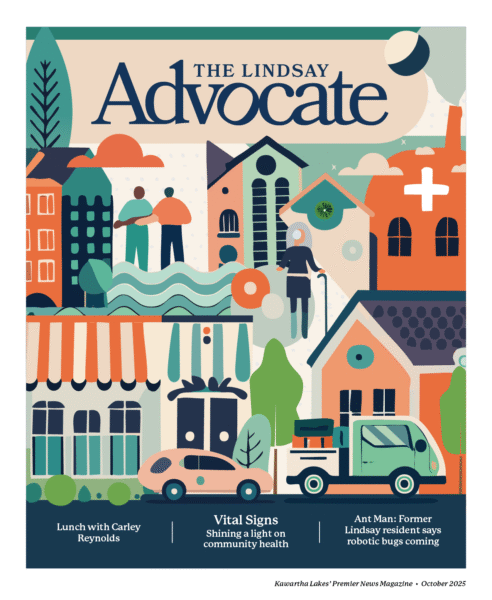For peat’s sake

If you have a garden, you’ve probably used it. If you’ve been lucky enough to hike the three km trail to Western Brook fjord in Newfoundland, you’ve walked over it.
Peat is something we typically don’t think much about unless we’re buying triple mix or compostable plant pots. But it’s getting more attention these days.
The province is pushing through legislation to, among other things, fast-track mineral mining in the Ring of Fire, about 500 km northeast of Thunder Bay. And that happens to be smack dab in the second largest peatland complex on the planet – the Hudson Bay Lowlands.
Peatlands, composed of mostly wet, decomposing sphagnum moss and other plants, store twice the carbon of all the world’s forests combined, says Pete Whittington, wetland researcher at Brandon University in Manitoba. Like wetlands everywhere, peat areas also reduce wildfire and flood risks, filter water and provide important habitat.
That garden peat we buy comes from the lowlands, the source of most of North America’s horticultural peat. It’s an area that stores 1.6 to two billion tonnes of carbon. To mine the stuff, soil must be drained, which exposes decaying vegetation, releasing carbon into the atmosphere. And that’s not something we need on a warming planet. The federal government restricts the amount of peat that can be mined.
Extractors fund projects to restore peatlands, which take hundreds of years to form. Restoration work can cut that time down to 20 years. And Whittington is involved in research that could shrink that number even further.
But Ring of Fire mining is something else entirely. The province has been saying that the 5,000 square km area will be a “Special Economic Zone” where, to speed up the mining process, projects could be exempted from provincial and municipal laws, bylaws and regulations. That includes ignoring environmental regulations.
The dilemma is something of a Solomon’s choice, made worse by the lack of guardrails. Here we have a mining industry wishing to extract critical minerals like chromite, cobalt, nickel, and copper for electric vehicle batteries and green technology. That technology could reduce planet-warming carbon dioxide emissions. On the other hand, mining in such an environmentally sensitive area will do major habitat damage, disrupt the flow of water in the Hudson Bay Lowlands and release considerably more carbon into the atmosphere.
Recognizing the importance of peat, England is gradually banning peat products, including bagged compost, between now and 2030. Other countries, like Ireland and Germany, are looking at reducing peat use. And Chile has banned peat extraction altogether.
In Canada, while no province has restricted peat products, some gardening and horticultural groups are urging members to consider peat-free products.
Suggested alternatives include coconut coir, the fibrous by-product of coconut processing in South Asia. Others include vermiculite from South Africa or perlite from Greece. While much better, like anything we buy they do come with environmental costs from production and shipping.
Other actions include donating to groups like the Wildlife Conservation Society of Canada, or Nature Conservancy Canada. They work to preserve wetlands and peatlands.
We also can push the province to set guardrails in that “Special Economic Zone” so that mining companies have to minimize the damage they do to the peatlands and include restoration efforts where they can. Not just for peat’s sake. For everyone’s sake.





I had hoped that my vote in February of this year would help to stop Doug Ford from ‘paving paradise and putting up (another) parking lot’..(with a nod to Joni Mitchell) but not enough of us made enough of a difference. Pushing and urging the Province to take better care of our lands and peoples apparently in not enough…we need to speak slowly and softly together so they can understand but carry a bigger stick…that would be our votes, at the polls. Thanks for letting me vent.
I don’t live in Toronto any more, but a parking garage on our precious waterfront? Why more activities on the waterfront? When everything closes for the night getting home will be a nightmare. Do we have any say about the environment? Of course not.
He lost my vote at the last election.